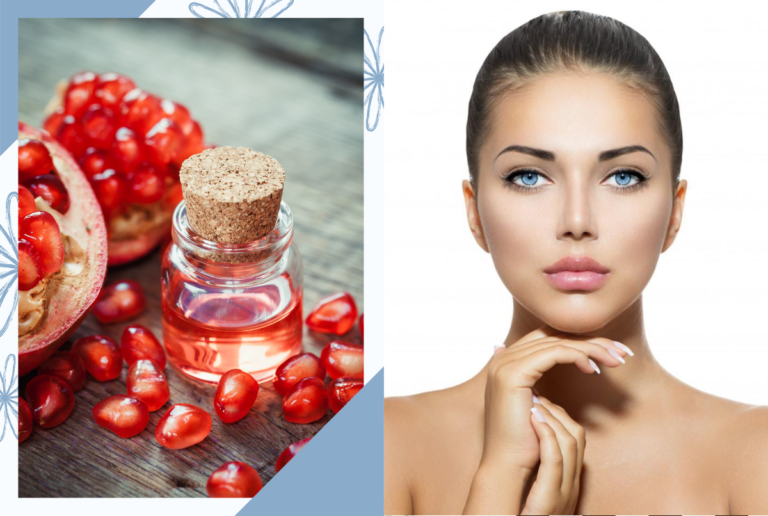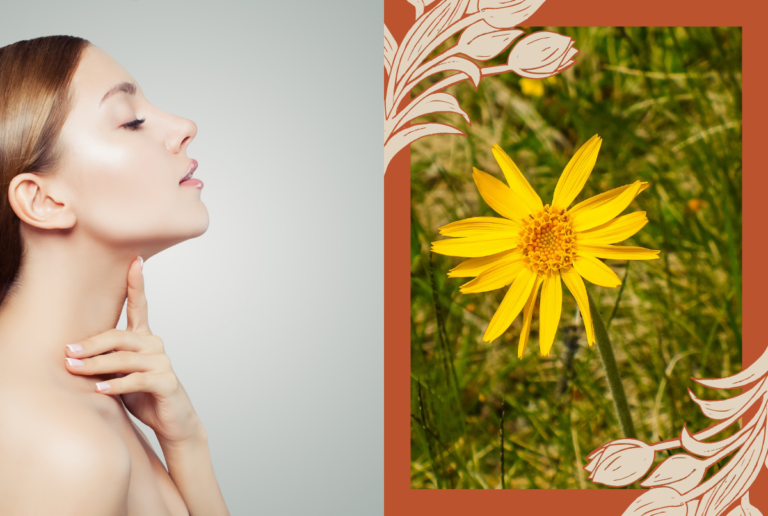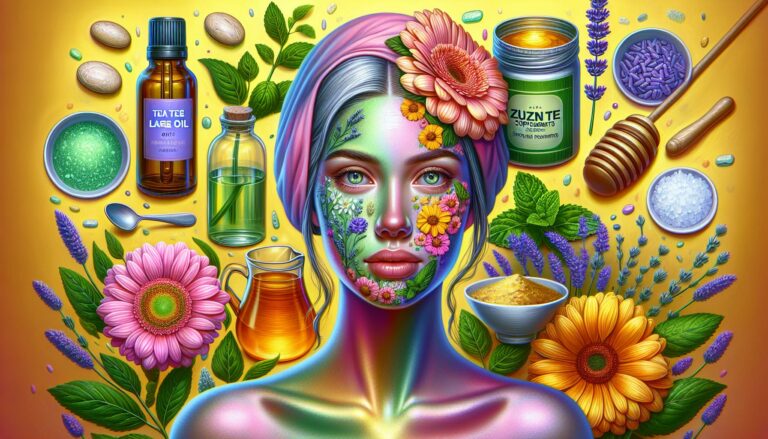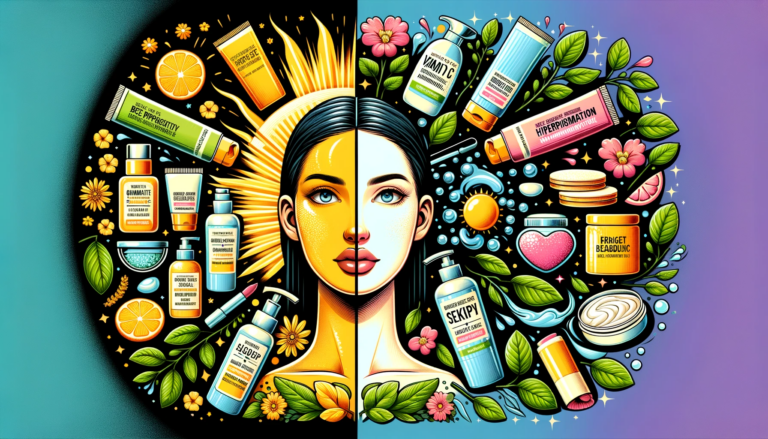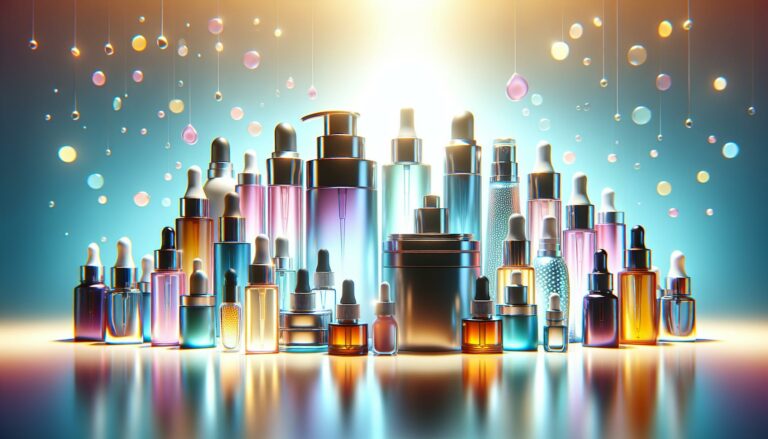11 Natural Skin Care Preservatives
From food to skincare, preservatives are used everywhere.
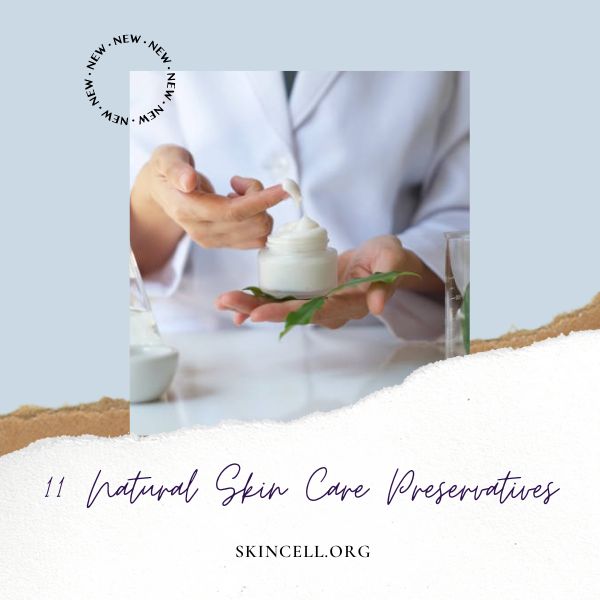
Many skincare products are still using chemical preservatives that are tested to be unsafe. Hence, identifying natural, effective, and safe skincare products is like finding a needle in a haystack!
So should we stop using skincare products? No, not really; you simply need to avoid the ones with harmful chemical preservatives. And for that, you need to identify the preservatives that don’t have any substantial benefits for your skin.
That’s where this guide comes in. Here, we have listed some commonly used natural preservatives and gauged their safety. Having this knowledge will help you make a better decision.
So, without further ado, let’s dig in!
Difference Between Organic And Natural Preservatives
There is a widespread misconception that organic and natural preservatives are the same and equally safe. But let us explain the difference between these two.
The products labeled as “natural” can still contain chemicals that are harmful for your skin. This is because formal agencies don’t really regulate the term “natural,” allowing brands to use any preservatives in their products and label them “natural.”
So, if you’re looking for truly natural products, we’d recommend using the ones that are labeled as “organic.” Products marketed under this label are regulated by FDA (Food and Drug Administration), and there’s a higher chance you’ll get wholesome and safe products.
However, one potential downside is that some of the beneficial ingredients like clay aren’t deemed organic. Hence, it’s important to know about natural cosmetics and ingredients before purchasing skin care products .
Why Do Skin Care Products Need A Preservative?
Harmful or not, preservatives (1) are an important element of a skincare product as they don’t allow bacteria or microbes to grow. Besides, the water content in these skincare products increases the need for including preservatives. Otherwise, the chances of waterborne bacteria contaminating the product can be very high.
Apart from that, dipping your finger in and out of a skincare product increases the risk of bacterial infestation. So, the primary role of preservatives in these products is to create an environment where these one-celled organisms can’t grow. If you don’t want these harmful bacteria or fungi in skin care products, it’s important to reconsider your stance on preservatives.
Now, wholesome and organic preservatives like honey, tea tree oil, lemon, rosemary extract, honey, propolis, grape seed extract, or vitamin E (2) are very good for the skin. But products with these ingredients as preservatives tend to have a very short shelf-life or need to be refrigerated.
So the predicament remains, what shall we do? Some companies use preservatives that are similar to organic ingredients and safe for your skin. But some of them try to slip in some harmful chemicals.
Therefore, being a customer, the safety of your skin lies entirely in your hands. You should be able to tell which preservatives are harmful and which are not.
Commonly Used Natural Skincare Preservatives
A. Preservative Eco
“Preservative Eco” is the trade name for some of the most popular natural preservatives, which are made from four individual ingredients: benzyl alcohol, salicylic acid, vegetable glycerin, and sorbic acid. The term “preservative eco” will not appear on the label of a cosmetic, but its individual ingredients will.
All ingredients are derived from natural sources such as rowan berries, pine resin, and willow bark. The preservative is a non-isothiazolinone, non-formaldehyde, and non-paraben-based formula, as all these can be harmful if present in skin care products.
You can find this preservative in numerous skin care products, especially creams. It has properties like low odor, compatibility with products in the pH range of 3-8, and it can be stirred at low temperatures.
Is It Safe?
Yes, it is. It has received global acceptance and accreditation from agencies like COSMOS and Ecocert (3), two reputable certifiers of organic cosmetics. The only word of caution with this preservative is that it shouldn’t be used on children under the age of three, as benzyl alcohol can irritate their delicate skin.
B. Dehydroacetic Acid And Benzyl Alcohol
Benzyl alcohol, when mixed with dehydroacetic acid, leads to the formation of another all-natural preservative that runs under the trade names Cosgard or Geogard 221. Made of alcohol and organic acids, this preservative can be used in organic and natural products.
Apart from being free of formaldehyde, parabens, and isothiazolone, this preservative is compatible with products in the pH range from 2 to 7.
Is It Safe?
Yes, it is an Ecocert-approved preservative and usually doesn’t harm the skin. Nevertheless, similar to our previous preservative, it shouldn’t be applied to children below the age of three, as it may not be suitable for their skin.
C. Caprylyl Glycol, Caprylhydroxamic Acid, And Glycerin
The combination of these three organic compounds, according to cosmetic companies, are highly effective as fungistatic and biostatic agents. Because of the presence of various multifunctional agents, the preservative can create self-preserving formulations. Moreover, it’s compatible with pH-neutral products.
However, products with this particular preservative might interact with iron to produce a mild orange color, which is why they shouldn’t be stored at high temperatures for long.
Is It Safe?
The preservative is patented by INOLEX (4) to be safe to use in their cosmetic products. It is free of isothiazolinones, parabens, and formaldehyde donors, all of which are harmful chemical preservatives.
D. Geogard Ultra Or Sensicare M4200
It is a broad-spectrum preservative that improves the moisture content of the product to which it is added. The preservative is primarily used in makeup, especially pressed powders, and is compatible with ingredients that consist of anionic, non-ionic, and cationic surfactants.
Besides, any product with a pH range of 3-7 goes well with the preservatives. And being water-soluble, it can be added to water-based products as well.
Is It Safe?
Yes, it complies with the natural preservatives standards established by both COSMOS and Ecocert. And it offers broad-spectrum protection against yeasts, bacteria, and mold. So, any product containing this preservative is considered to be safe to use on the skin.
E. Plantaserv Q or Naticide
Plantaserv Q or Naticide are the trade names of this preservative, but they appear as Parfum or Fragrance on product labels. Although these terms are considered red flags, Naticide is safe to use in organic and natural skin care products. You might recognize it by the sweet vanilla almond scent.
This vegetable-derived preservative has numerous uses, thanks to its role in preventing mold and yeast growth in products with a pH range of 4 to 9. In fact, Plantaserv Q or Naticide is a popular preservative used by many Australian natural skincare product manufacturing companies.
Is It Safe?
Although COSMOS or Ecocert does not approve the preservative, there haven’t been any issues reported so far. However, the primary issue with this preservative is its listed names. Since more than 4,000 chemicals are listed under the names “Parfum” or “Fragrance” (5), it can be difficult to gauge the safety of each of them.
F. Parabens
Although parabens are known to harm the skin and are widely avoided, some companies continue to include them in natural skincare products. This is because they are more effective in preventing fungal and bacterial growth, keeping the products fresher for longer.
Another thing to note is that parabens go by various names, and the few common ones include ethylparaben, methylparaben, isoparaben, and butylparaben.
Is It Safe?
Absolutely not. Parabens are known to be carcinogens and hormone disruptors (6). They can also mimic estrogen hormone, and studies show that they play a significant role in urogenital abnormalities and breast cancer (7). Hence, it’s best to avoid any product that contains even the smallest amount of parabens.
Potassium sorbate is a naturally occurring white salt and a quality alternative to parabens. It prevents microbes from developing in an organic skincare product.
G. Aloe Vera
In 2005, a team of researchers in Spain invented aloe vera gel to function as a natural preservative (8). And since then, it has been widely used as an alternative to synthetic preservatives like sulfur dioxide.
Aloe vera is also used as a preservative in other industries. It’s available in gel, juice, or powder forms and is one of the most pervasive natural preservatives used in skincare products. Plus, aloe vera is often combined with fresh coconut oil-based preservatives, which adds to its benefits.
However, many manufacturers try to use preservatives like parabens by mixing them with aloe vera, as aloe vera on its own may not be a very effective preservative.
Is It Safe?
Aloe vera is among our favorite preservatives, as it can be used by people with all skin types. In fact, using products containing aloe vera can cool the skin and its anti-inflammatory properties reduce sun burns or irritation and provide relief against any inflammation.
Apart from that, it keeps the skin moisturized for longer and potentially helps treat several conditions like eczema, acne, and rosacea. So, we’d definitely recommend opting for aloe vera products, provided they aren’t paired with any other preservatives except coconut oil.
H. Quats
Quats appear under several names on the labels, like polyquaternium-11.
These preservatives consist of a quaternary ammonium compound as their primary element. Manufacturers use these preservatives in products like body washes, body butter, moisturizers, deodorants, hand soap, lip balms, acne treatment creams, hair care products, and sunscreens.
These are used as a skin conditioning agent as well as a preservative because of their soothing properties, which also make the skin feel smooth to touch.
Is It Safe?
Quats were considered safe for a long time, but they are raising some concerns recently. A recent study by AOEC ( Association of Occupational and Environmental Clinics ) classified quats as asthmagens (9). It means these can trigger asthma and even cause new cases in people who don’t have the condition.
Moreover, certain quats like Quaternium-15 are very dangerous, as they can release formaldehyde, which is a known carcinogen and can cause allergies. Benzalkonium chloride can affect the normal hormone functioning and may even cause reproductive and developmental toxicity.
At the very least, quats can cause skin irritation, so what’s the point of taking a risk?
I. Diazolidinyl Urea
Diazolidinyl urea is another antimicrobial preservative used in natural cosmetics like shampoo, hair conditioners, body butters, and household detergents. Diazolidinyl urea is a commercially available mixture of various formaldehyde additive compounds.
Similar to parabens, this preservative is highly effective in preventing the growth of unicellular organisms like bacteria, yeast, mold, and gram-negative species. Hence, it can increase the shelf life of these products.
Is It Safe?
No, it’s not safe at all. The primary element of this preservative system is carcinogenic formaldehyde. Some people have reported developing dermatitis after contact with Diazolidinyl urea. Hence, we’d recommend avoiding products with this compound on their labels.
J. Mercury
Although mercury isn’t a commonly used preservative in a skin care product, you might find it in certain skin-lightening creams. It usually appears under the name “thimerosal.”
Is It Safe?
Amongst all preservatives on our list, mercury is the most dangerous. Even at lower levels, it can damage brain function. So, make it a point to avoid products that use mercury as a preservative.
K. Grapefruit Seed Extract
Grapefruit seed extract is a naturally potent antioxidant derived from the rich pulp and seed of grapefruits. It is particularly rich in phytochemicals like Ascorbic acid, Flavonoids, and Tocopherols that contribute to disinfecting and preservation.
This makes it effective in dealing with bacteria or other microbial contamination, especially water-soluble ones.
Is It Safe?
Being a natural ingredient free of any chemicals, it is safe to apply to your skin. It also fights microbes and has anti-inflammatory properties that can help heal damaged skin.
Final Words
That’s all we had for today!
Although some natural cosmetic formulations are deemed safe, they don’t guarantee any benefits, as the ingredients may not be tolerated well by everyone. So, make sure to check with your doctor to see if the product is safe for your skin. And always opt for products with COSMOS or Ecocert-approved preservatives.
We will be back with more such informative reads. Adios for now!
References
(1) https://www.chemicalsafetyfacts.org/preservatives/
(2) https://blog.publicgoods.com/what-are-natural-preservatives/
(7) https://www.ncbi.nlm.nih.gov/pmc/articles/PMC8834979/
(8) https://www.foodnavigator.com/Article/2005/09/23/Aloe-vera-developed-as-natural-preservative
(9) https://biomonitoring.ca.gov/sites/default/files/downloads/WRAPPcomments030420.pdf


